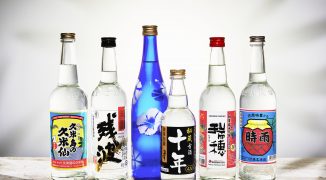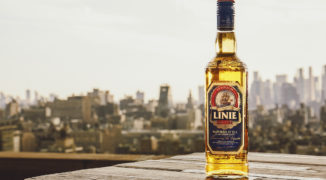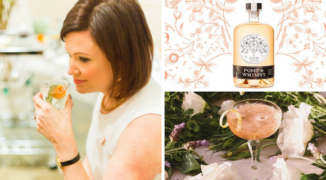It’s a question even the most committed of cocktail enthusiasts grapple with at some point: What to drink when you’re not drinking? Having an alcohol-free night at your favorite bar can be a dispiriting affair, with your options too often limited to a sugary soda at worst or an uninspired mocktail at best. Now, a new product hopes to tackle that conundrum.
Seedlip, which launches at the end of October, is a distilled non-alcoholic spirit — the world’s first, according to the product’s founder, who goes by “Seedlip Ben.” The idea came to him while researching old, forgotten herbal recipes from the 16th and 17th centuries. Ben’s research led him to John French’s 1651 book, “The Art of Distillation,” which lists a large number of remedies for various ailments. Coming from a background in the drinks industry on the branding and agency side, Ben says he was interested in distillation and the world of spirits but was intrigued to find that “The Art of Distillation” talked about not only alcoholic remedies, but about non-alcoholic remedies too, both using distillation. “It’s easy to forget that alcohol had its origins in medicine. That quickly moved to drinking for pleasure, and it seems we forgot about the non-alcoholic side.” Ben says. “I’m not a distiller and I’m not scientific, but I thought that was interesting. So I bought a little still and starting playing around in my kitchen.”rn
Seedlip consists of distillates of six botanicals – two barks, two spices and two citrus peels – blended together without any alcohol or sugar. The ingredients are sourced from across the globe: oak bark imported from the U.S., cardamom from Guatemala, Cascarilla bark from the Bahamas, lemon peel from northern Argentina, grapefruit peel from Turkey, and pimento berries from Jamaica.
 Seedlip Ben is the brains behind this new distilled miracle.
Seedlip Ben is the brains behind this new distilled miracle.
“The simplest way of describing it is it’s kind of smoky, clove-y, citrusy. Because we individually distill everything, we can perfect the balance,” he says. “So you’ve got the bitter side coming from the barks, the clove-y aspect from the pimento berries and the cardamom, and then the lemon and grapefruit peels add some fresh zest.”
As he comes from many generations of farming – his family has farmed in the north of England for more than 300 years – Ben says that being transparent about ingredients is especially important to him. “It’s the clever bit – distilling-wise and process-wise – that is our little secret.”
The six ingredients are individually distilled; five of them in copper stills in Germany, and the lemon peel in a stainless steel still at the source at the groves in Argentina. “We found a process that means we can distill and play with temperature and how long we distill and what we do with the ingredients before we distill them. That means we can get the most flavor out of each individual ingredient.”
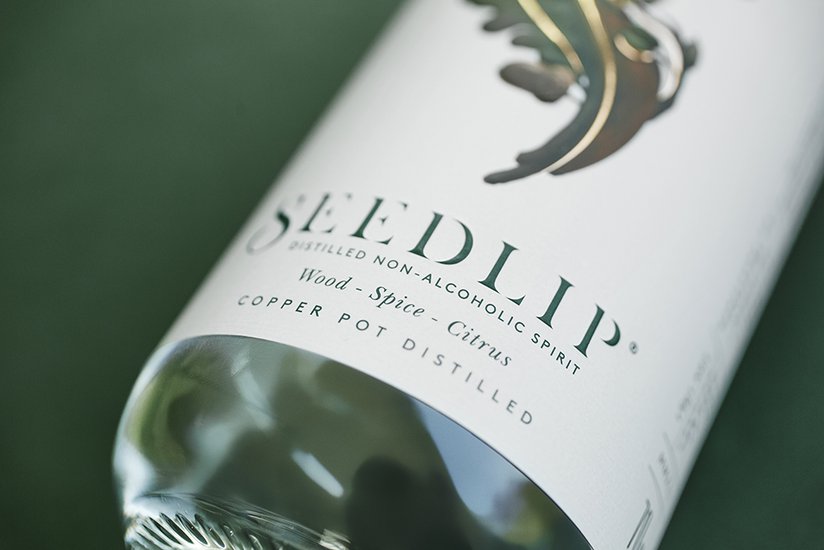 It’s a priority for Seedlip to be forthright about their preciously chosen ingredients.
It’s a priority for Seedlip to be forthright about their preciously chosen ingredients.
It’s a priority for Seedlip to be forthright about their meticulously selected ingredients.
Seedlip can be served long or short – the Seedlip martini is made with olive and jalapeño brine, and Ben has also been experimenting with an espresso martini, using cold brew syrup – but, he says, it is best served with tonic, preferably Fever Tree. “The profile works really well with Seedlip – not too sweet, good carbonation, good bitterness.”
Appropriately, London’s top bartenders got their first taste of Seedlip at previews in London’s oldest botanical garden, the three-acre, little-known, Chelsea Physic Garden, founded about 22 years after “The Art of Distillation” was published. Soon, the product will be rolled out in Selfridges, the esteemed London department store, and in bars such as Dandelyan, which, with its focus on botany, is “made for Seedlip,” according to Ben. Next year, Seedlip Ben hopes to export to America and Australia.
But what is it that really distinguishes a Seedlip-based cocktail from the much-maligned mocktail? Mocktails try to mimic alcohol cocktails yet always fall short, Ben says, adding that he is trying to help bartenders create amazing non-alcoholic drinks by giving them a great liquid with great flavor. Seedlip is not trying to imitate alcohol, he says. “Mocktails tend to just be a blend of fruit juices or an imitation of an actual great cocktail. What we are trying to create is something different and unique unto themselves.”
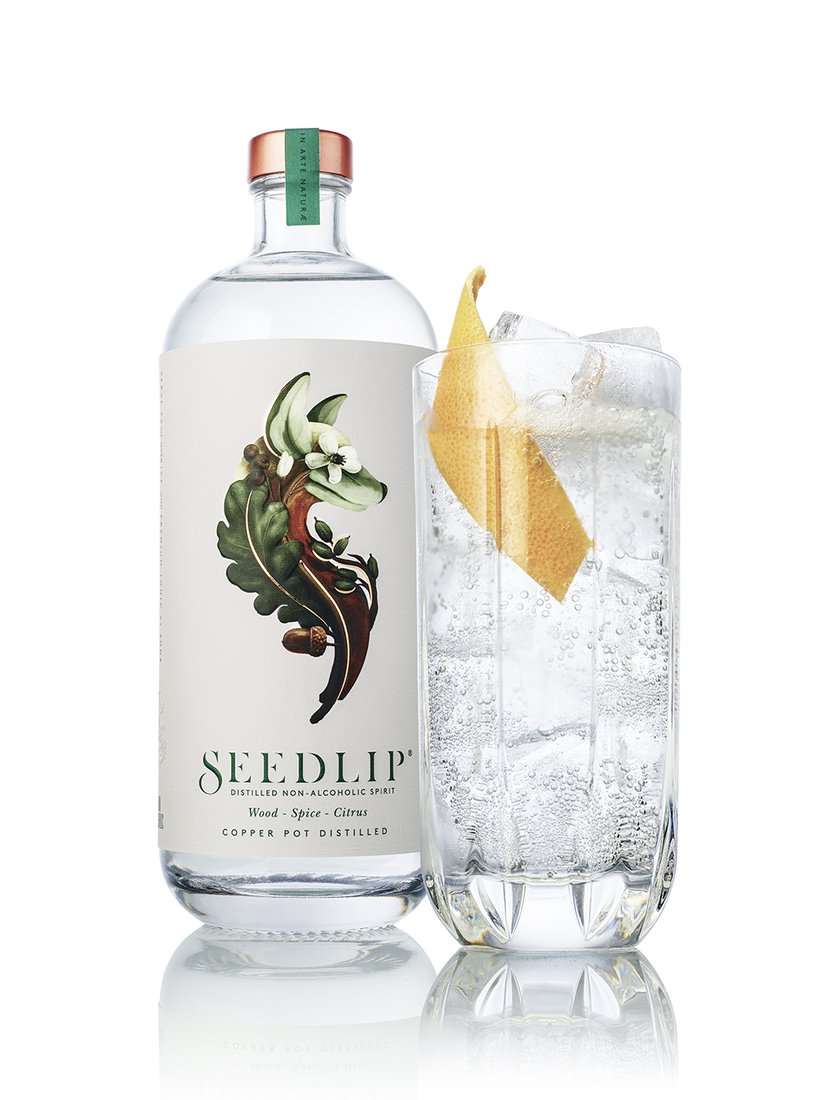 Seedlip is best consumed with tonic, which enhances its botanical essence.
Seedlip is best consumed with tonic, which enhances its botanical essence.



